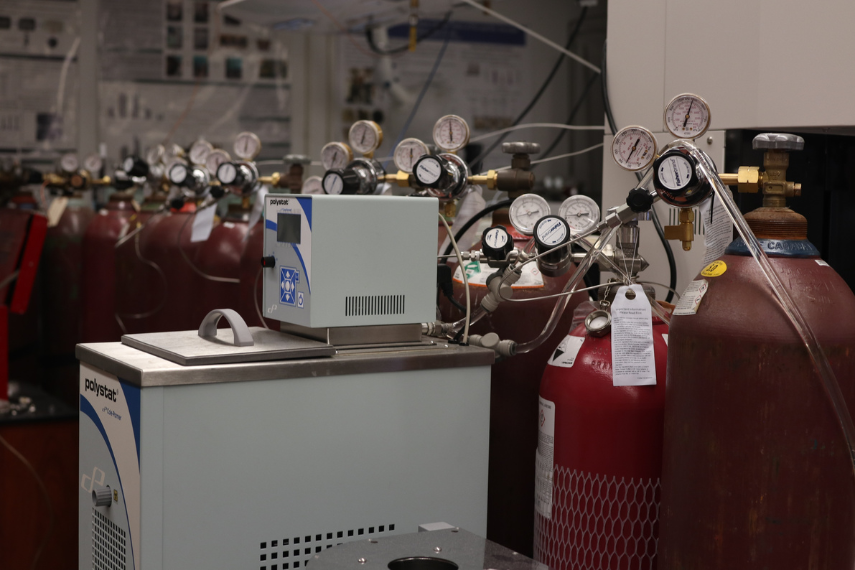Turning Rocks into Climate Solutions
Milad Norouzpour is a PhD student in Environmental Engineering in the School of Engineering at the University of Guelph. Guided by his supervisors, Dr. Emily Y. W. Chiang and Dr. Rafael Santos, Milad's research focuses on CO2 sequestration through mineral carbonation. This process captures and permanently stores carbon dioxide by reacting it with naturally occurring minerals, like olivine and serpentine to form stable carbonates.
Through his graduate studies, Norouzpour wanted to address the growing challenge of climate change caused by rising levels of atmospheric CO2. His work aims to reduce industrial emissions and promote environmental sustainability by developing practical and scalable technologies for large-scale CO2 sequestration. This involves investigating the kinetics and thermodynamics of the reactions of minerals like olivine and serpentine, designing innovative reactor systems, and exploring various conditions and catalysts to enhance efficiency. This will be accomplished through extensive laboratory experimentation and advanced computational modelling.

By capturing and storing CO2 from industrial emissions, it can significantly reduce greenhouse gas levels in the atmosphere, helping combat climate change. Additionally, the process can utilize industrial byproducts, such as mine tailings and slag, turning waste materials into valuable resources for CO2 sequestration. This promotes a circular economy within industries, reducing waste and enhancing resource efficiency. The carbonates produced can also be used as raw materials in the construction industry, reducing the demand for natural resources. Moreover, his research supports industries in meeting stricter emissions targets and carbon pricing mechanisms, offering a viable pathway for regulatory compliance.
However, Norouzpour's journey has not been without challenges. One primary obstacle is the variability in the composition and reactivity of the minerals used for carbonation, necessitating extensive and time-consuming analysis to achieve consistent results. Additionally, achieving a fast and efficient carbonation reaction requires the development of process intensification techniques. Scaling up laboratory successes to industrial applications involves addressing issues related to reactor design, energy consumption, and handling large volumes of materials.
Despite these challenges, Norouzpour remains optimistic about the potential research results. He expects to enhance carbonation efficiency, design practical reactor systems for industrial-scale applications and provide comprehensive material characterization. He also aims to develop scalable process models, demonstrate economic and environmental benefits and establish protocols for ensuring the long-term stability of sequestered CO2. His research is anticipated to contribute to policy and industry guidelines for CO2 sequestration by providing evidence-based recommendations for regulatory frameworks, aligning with global efforts to combat climate change and making his work highly relevant and impactful.
"The collaborative and supportive community, state-of-the-art facilities, and opportunities for interdisciplinary collaboration greatly enhance my research experience," says Norouzpour.
"Pursuing a PhD at the University of Guelph has been a journey of personal growth and self-discovery. I am proud to contribute to meaningful research that can make a real difference".
This story was written by Shahriyar Ghazanfari Holagh as part of the Science Communicators: Research @ CEPS initiative. Shahriyar is a PhD candidate in the School of Engineering under Dr. Wael H. Ahmed. His research focus is on multi-phase transport phenomena in gas-liquid systems, aiming to reduce energy inefficiencies and mitigate environmental impacts.
Funding Acknowledgement: This work is supported by funding from the Natural Sciences and Engineering Research Council of Canada (NSERC), the major federal agency responsible for funding natural sciences and engineering research in Canada.